Introduction
Tests and examinations are an important part of the education process.
They serve as tools through which educators can access how well the students grasped the concepts taught in class.
Examinations also help to grade students based on the effort they put into reading for their exams.
They therefore serve as a motivation factor since the students who work hard are rewarded by getting good grades while those who did not fail.
In spite of the necessity and various merits of exams, many students DREAD tests and exams
For many students, tests and exams are stressful things that make the school experience unenjoyable.
Most students would prefer a world where exams did not exist.
However, the reality is that exams play a useful role in the education system. It would therefore be important for students to be equipped with strategies that can help them prepare and Ace for the exams.
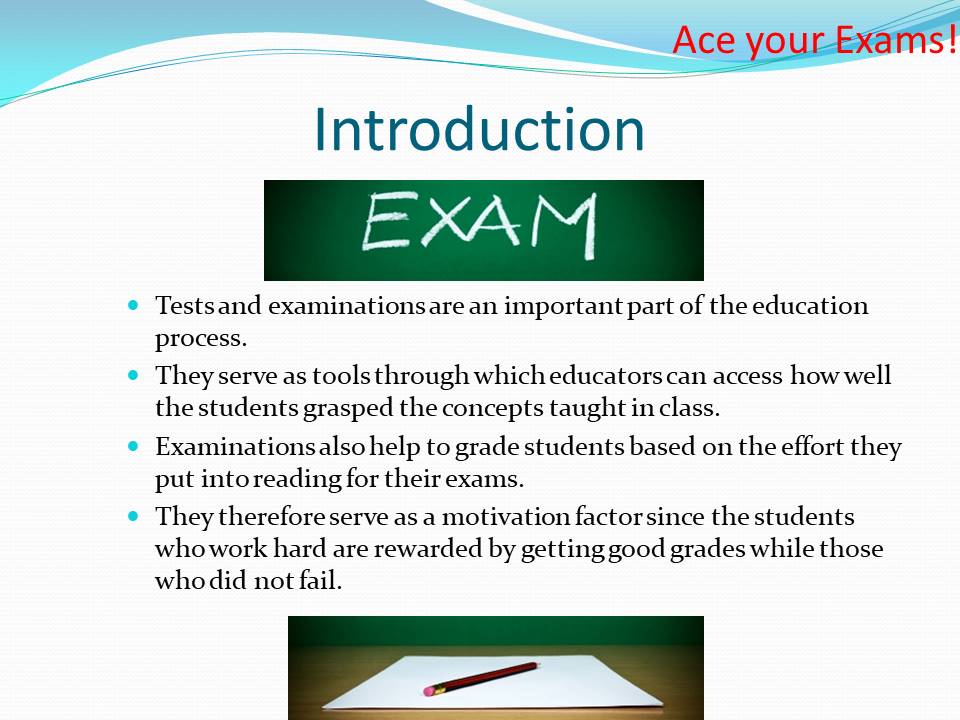
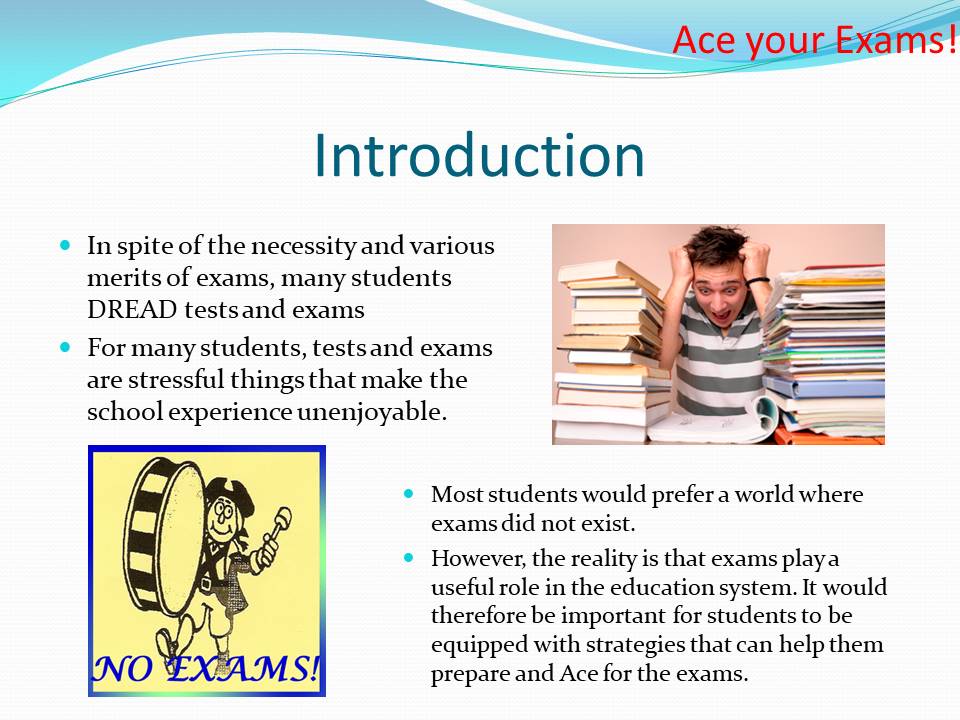
Study Skills
For one to ace the exams, he/she has to prepare for it.
Bayram (2013) declares that the personal studying habits of a student affect his success in tests and exams.
For many students, preparing for exams is the same as staying up late studying on the night before the exam.
Willingham (2014) declares that a preparation method that involves cramming practice into the hours right before a text might result in failure.
A better approach is to distribute the study hours throughout the semester.
The first step to good studying is managing your time (Moore, 2010).
Many students complain that there is not enough time to study for their exams but the reason for the lack of time is poor time management.
To properly manage time, keep a time log to determine how much free time is available for studying and create a calendar identifying the time dedicated to studying (Smith, 2012).
A schedule should then be created for the study time.
Keep track of how many hours you studied each week using a study log.
The notes provided by the tutor are of great importance to a student.
Significant portions of the tests and exams will be derived from these notes.
Mastery of the notes is therefore crucial to acing your exams.
A student should read the chapter before the lecture to help in better understanding of the lecture and enhance notes taking.
You should review your notes from the previous lecture since the new information in the upcoming class is connected to past notes.
Its important to take notes in class since research shows that people remember material better when they write it down.
Make a point to review the notes at the end of each week. This habit will ensure that the information is available in long-term memory and it can be easily accessed when needed in tests and exams (Blerkon 2011).
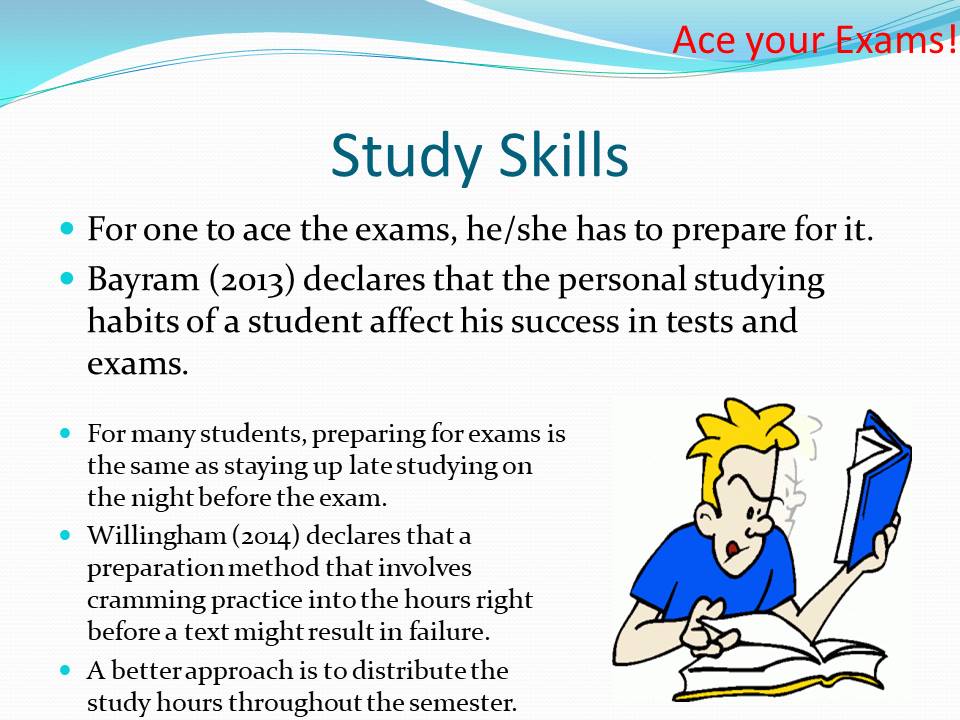
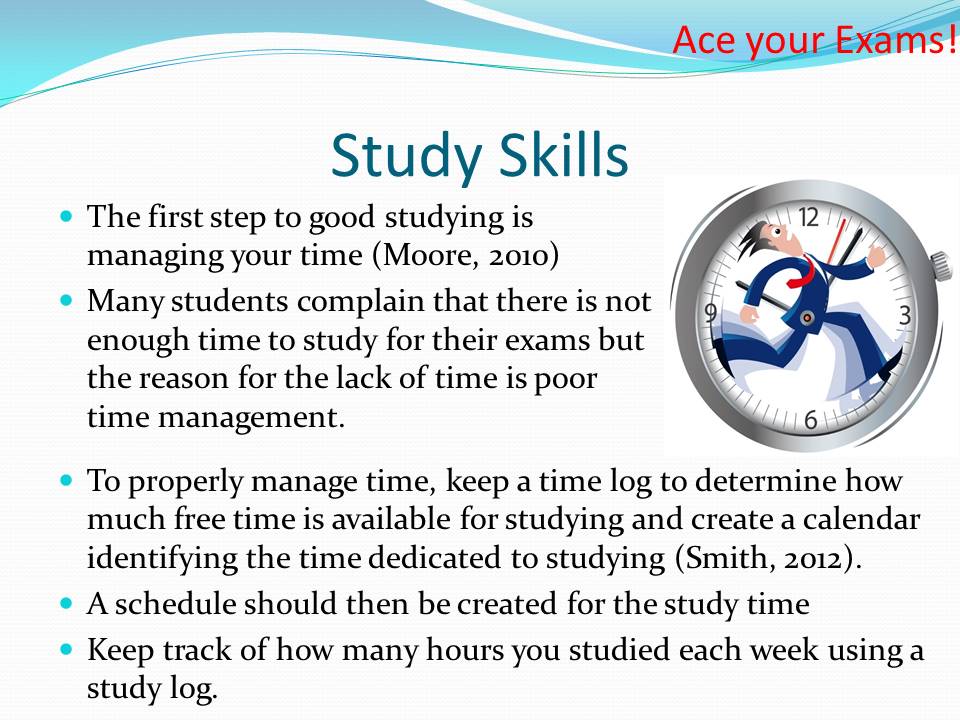
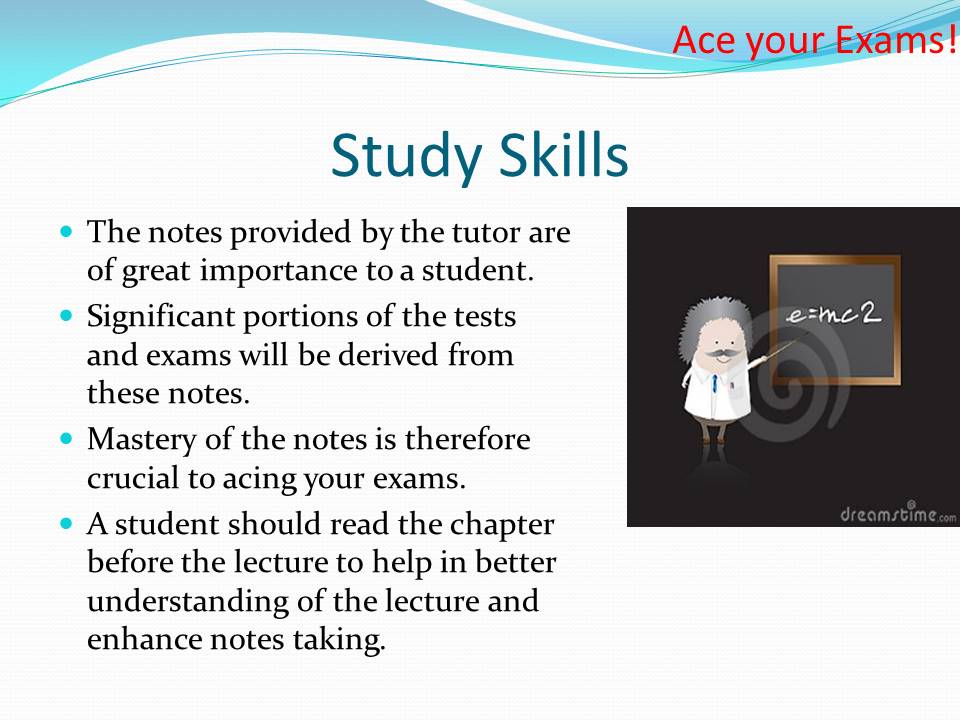
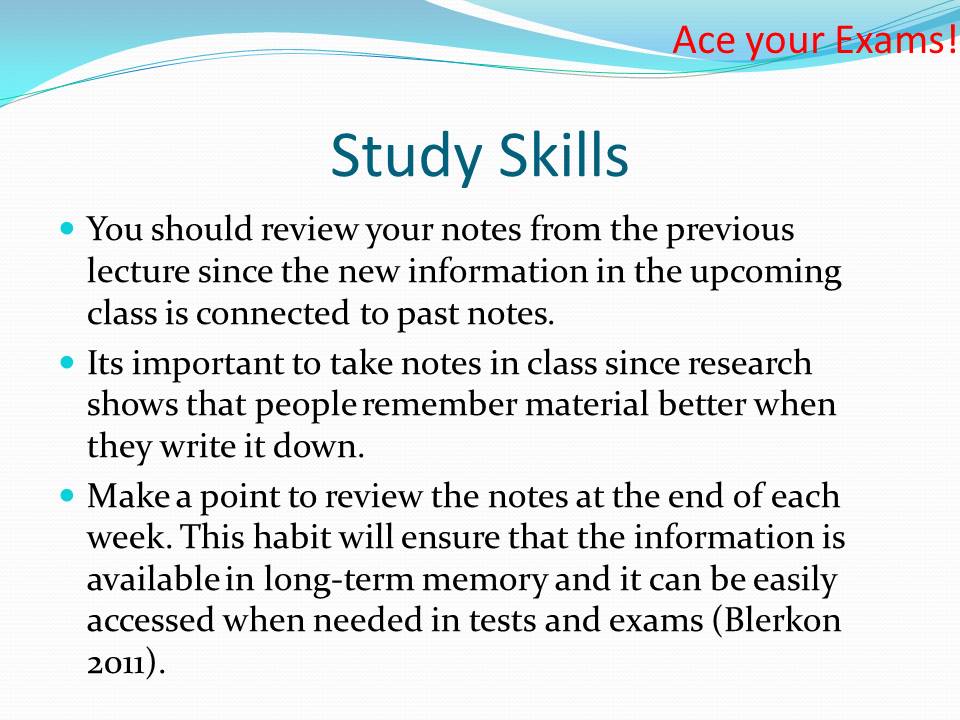
Preparing for Exam
They say that half the battle is won through preparation.
This dictum is applicable when facing exams; you need to take the time to prepare for the exams.
The first step in preparation is to gather all the information you can about the exam.
This includes the topics the exam will cover and the type of questions the exam will ask.
Armed with the information about the exam, you can space you study to increase efficiency in reading and storing information.
Blerkon (2011) suggests studying for about two hours a day for each unit for four to six days before the exam.
Having done the above activities, it is helpful to try predict test questions and then see how well you can answer them.
Finally, make study sheets, which are one-page compilations of all the important information about a topic.
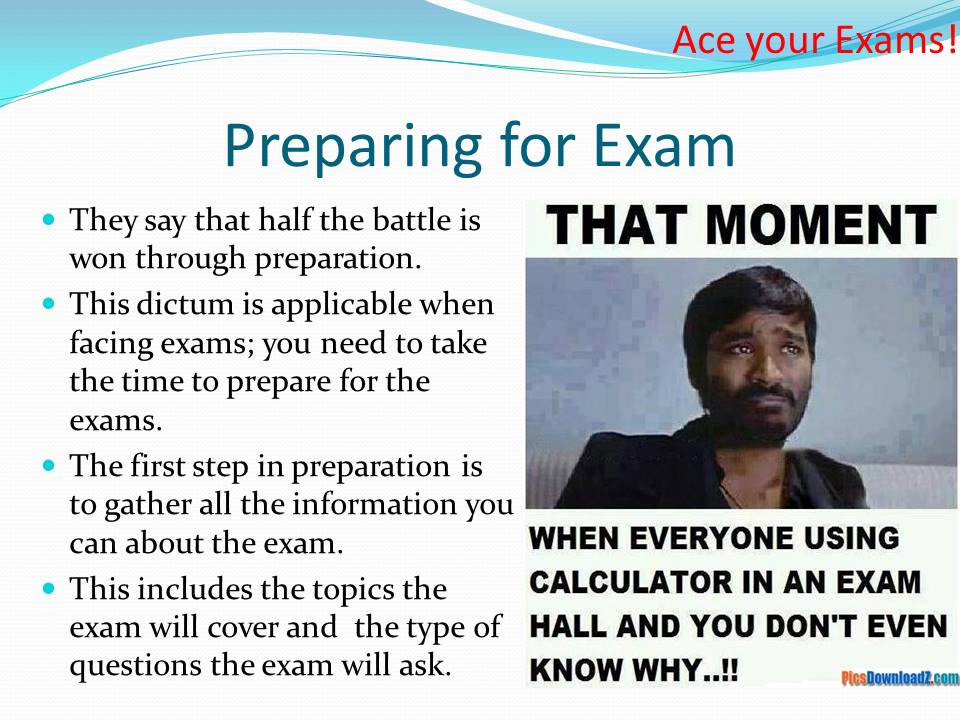
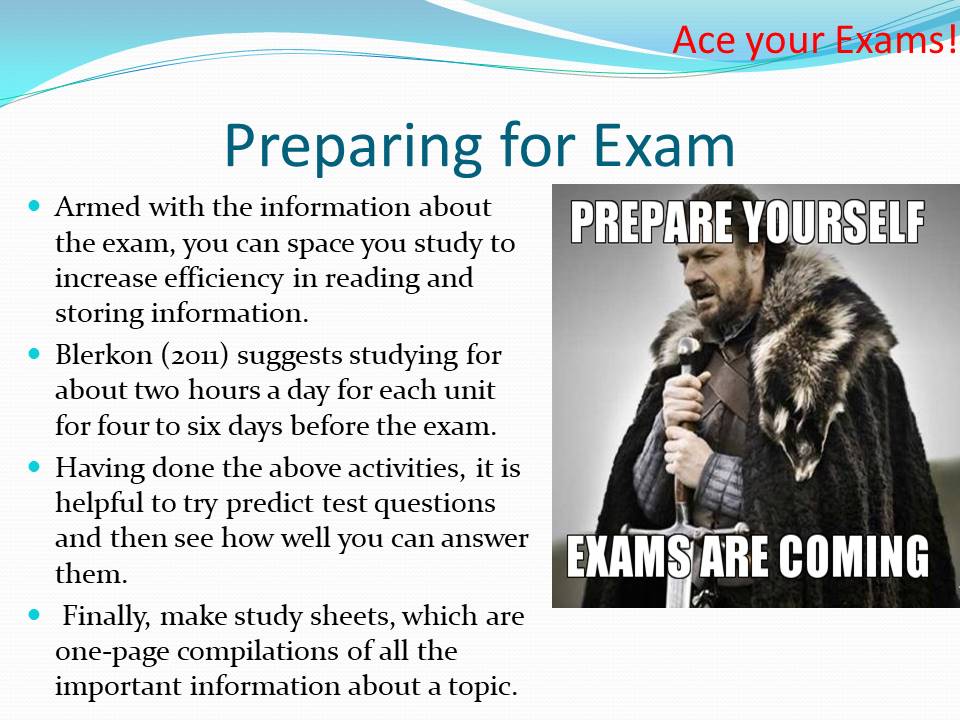
In the Exam Room
You are now ready to face the Exam.
The strategy to ace your exams does involves your conduct in the examination room.
Once the exam paper is in your hand, the first thing you should do is read the directions carefully.
After this you should use a few minutes deciding on how much time you will dedicate to each question.
A good rule is to answer the easiest questions first and then go back to the difficult ones later.
This ensures that in case you run out of time, you will have answered the questions you’re sure to get right.
Academic integrity cannot be over emphasized. Avoid the temptation to copy from your friends or using any other means
Being dishonest in an exam is not only unethical but it carries stiff penalties.
However, if you make use of the strategies outlined in this presentation, you don’t need to resort to cheating to ACE your exams.
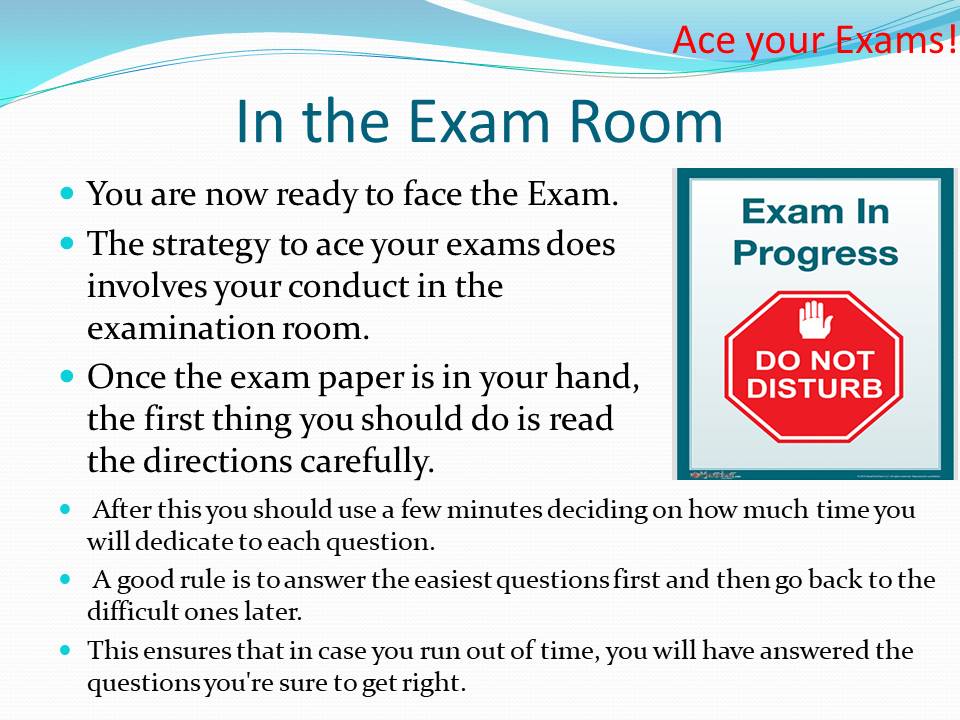
Works Cited
Bayram, B. (2013). Scale for test preparation and test taking strategies. Educational Sciences: Theory & Practice, 13(1), 279-289.
Blerkon, D.V. (2011). College Study Skills: Becoming a Strategic Learner. Boston: Cengage Learning.
Kontovourki, S., & Campis, C. (2010). Meaningful Practice: Test Prep in a Third-Grade Public School Classroom. Reading Teacher, 64(4), 236-245.
Moore, S. (2010). The Ultimate Study Skills Handbook. London: McGraw-Hill Education.
Smith, L. (2012). The effects of confidence and percepiton of test-taking skills on performance. North American Journal of Psychology, 4 (1), 37-50.
Willingham, D. (2014). Strategies that make learning last. Educational Leadership. Oct2014, Vol. 72 Issue 2, p10-15.